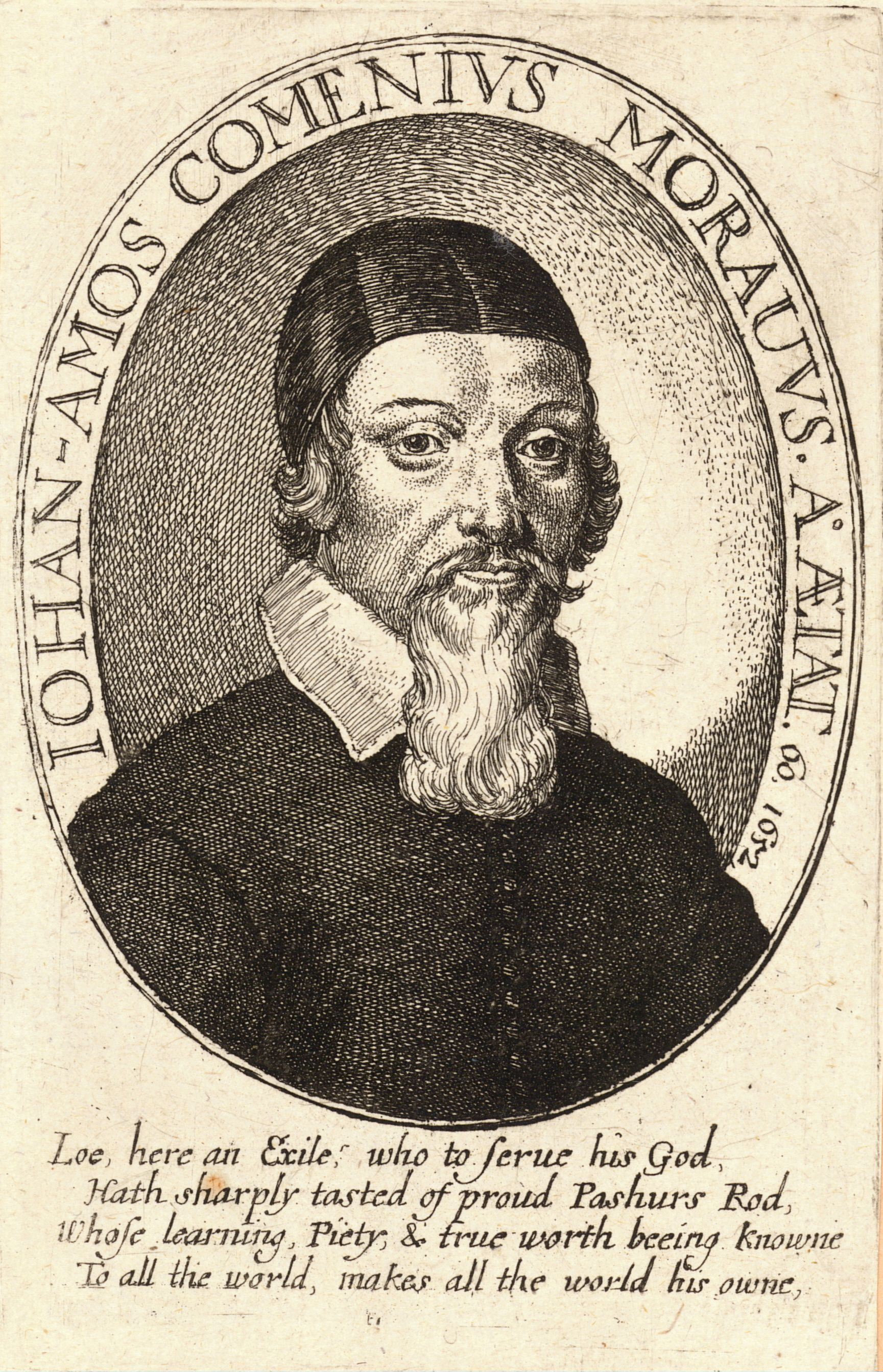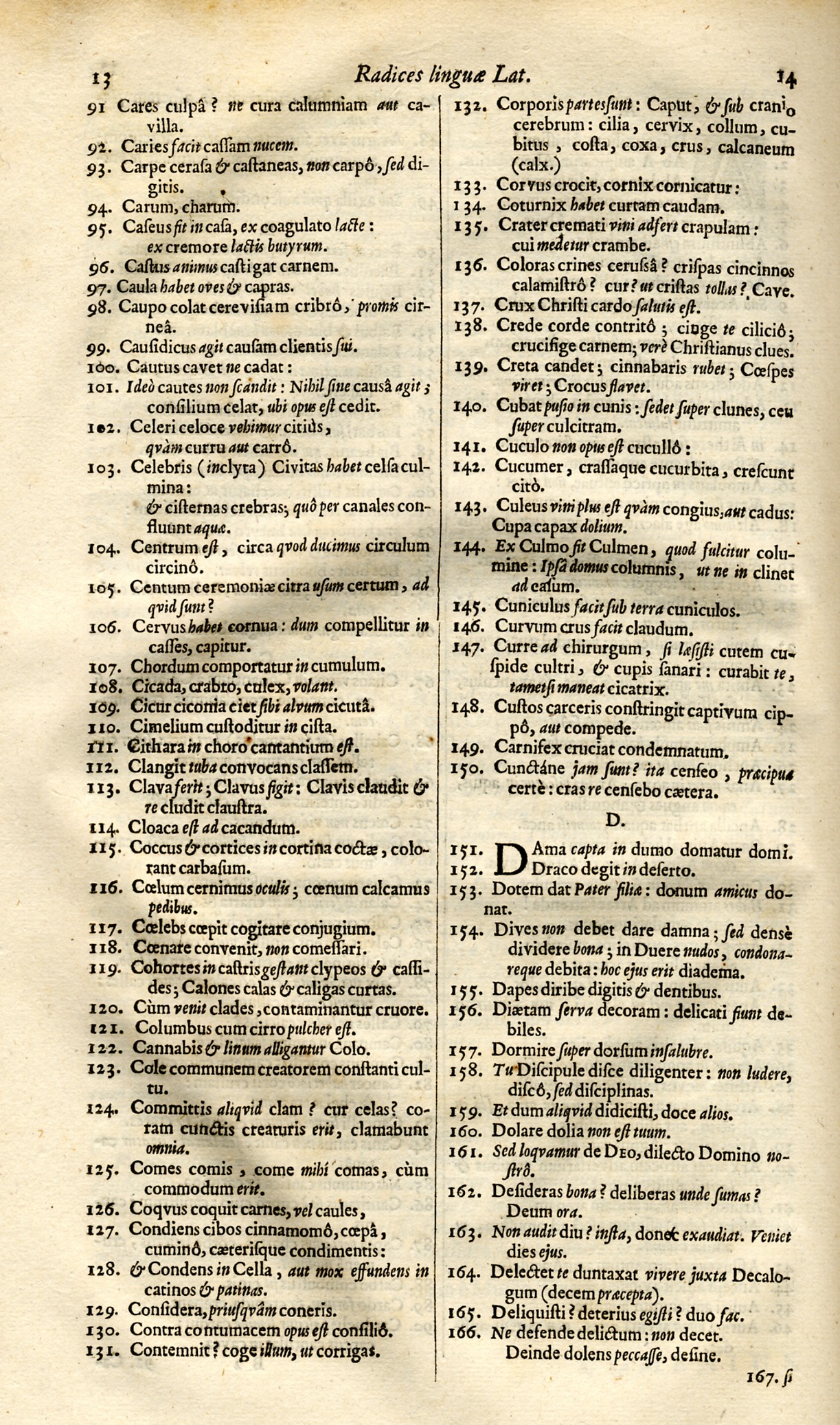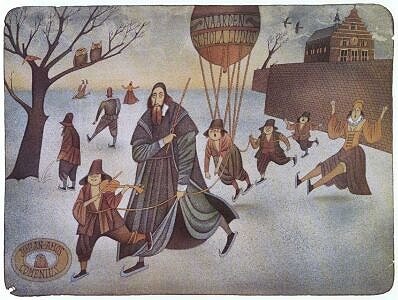Comenius almost single handedly assembled the curriculum we still use in schools to this day - the topics he selected, and the mode of teaching them, the progressive structure of the curriculum, and the idea of teaching a broad curriculum, an incremental education from kindergarten through primary and secondary to tertiary level, has remained highly influenced by his pedagogical works, as generation after generation of textbooks and curriculum design branched off his original systematic outline.
Comenius knew the importance of play in education, and wrote a number of jokey textbooks full of puns and humour - as well as his more serious works.
He also wrote the first-ever illustrated textbook for children, the
Orbis Sensualium Pictus.
Here is an example of one of his more light-hearted textbooks: the one with the pithy short title "Hoc Est Vestibuli Latinae Linguae Auctarium", which teaches important grammatical material using terribly bad puns (the kind enjoyed by young boys) and slightly rude jokes.
Of great importance in the history of education - although it was a failure in terms of its implementation - was his SCHOLA LUDIS - or "Game School". - where the curriculum would be delivered through role play.
For Comenius, school was supposed to be a place where the mind was opened, where dullness was abolished and where education was designed to be as effortless, enjoyable, and playful as possible. Writing in the 1650s, Comenius' plea for gamification of the classroom fell on deaf ears.







